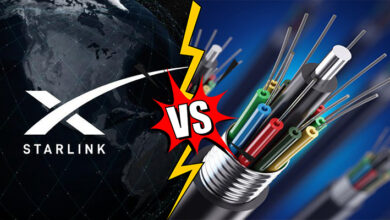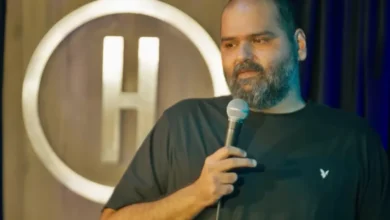Facebook and Amazon spent much of Wednesday’s congressional antitrust hearing about Big Tech trying to defend accusations that they have participated in aggressive and unfair practices while growing their massive empires.
The five-and-half-hour virtual hearing, hosted by the House Judiciary antitrust subcommittee, gave Congress members the chance to question Apple CEO Tim Cook, Amazon CEO Jeff Bezos, Facebook CEO Mark Zuckerberg, and Sundar Pichai, CEO of Google’s parent company Alphabet. While Congress members used the opportunity to dig into all four companies, Facebook and Amazon ultimately faced some of the most damning antitrust allegations.
Congress said competitors referred to Amazon as a drug dealer that bullies third-party sellers. And the subcommittee brought up former statements in which Facebook was referred to as going into “destroy mode” amid its attempts to buy Instagram and was characterized as being on a ”digital land grab” to maintain its market dominance.
While Zuckerberg disagreed with the description of his company and its practices, he did suggest that Facebook regularly works on products that are inspired by his competitors.
“We’ve certainly adapted features that others have led in,” Zuckerberg said.
Apple walked away relatively unscathed. Though Congress did address Google stifling small businesses by “stealing” information, including Yelp reviews, Google mostly fielded questions about issues like its work with the U.S. and Chinese governments and data privacy
The antitrust hearing was the first time the four CEOs of some of the largest global tech companies testified before Congress at the same time—and a first for Bezos. It also occurred as the Federal Trade Commission and the Department of Justice continue their antitrust investigations into the four companies. The tech companies have faced rising global scrutiny from regulators and users who are concerned with the amount of data these companies collect, how they manage that data, and their growing power.
U.S. Rep. Pramila Jayapal, a Democrat representing Washington’s 7th congressional district, addressed how Facebook handled its purchase of Instagram and its attempt to buy SnapChat. She accused the social media giant of cloning competitors’ products amid acquisition negotiations with the company. When Zuckerberg said he could not recall any threats to competitors, Jayapal reminded him he was under oath and that the subcommittee had emails suggesting otherwise.
“I want to respectively disagree with the characterization,” Zuckerberg said in reference to emails about Instagram. “It was clear this [mobile cameras] was a space we were going to compete in.”
Meanwhile, Rep. Mary Scanlon, a Democrat who represents Pennsylvania’s 5th district, addressed Amazon’s “aggressive” plan to win over competitor Diapers.com. She questioned Bezos about why the company temporarily slashed prices, making it impossible for Diapers.com to compete. Then when Amazon completed the purchase, the company drove the price up, Scanlon said.
“I don’t remember that at all,” Bezos said in response. “We match competitive prices.”
Congress members also expressed concern over whether Amazon is accessing third-party seller data in order to build its own product lines to compete with those brands. Amazon has a policy against viewing individual sellers’ data, though it does analyze the data in aggregate.
“I can’t guarantee that policy has never been violated,” Bezos said. “We continue to look into that. We’re not sure we’ve gotten to the bottom of that.”
At one point, Lucy McBath, a Democratic representative from Georgia’s 6th district, played a recording of a top Amazon bookseller who claimed her competing business had been removed from Amazon’s marketplace without reason—and none of her requests for assistance, including those directly to Bezos, were answered.
“We followed all the rules,” the bookseller said in the recording. “There are 14 lives at stake. Please, please, please help us get back on track.”
And while the hearing didn’t point to any specific regulatory action that may follow, it did show that across the aisle, Congress is concerned with the compounding issues related to the tech companies. Jerrold Nadler, a Democrat representing New York, suggested that the concentration of power is dangerous to a Democratic society, and that four tech companies, in particular, deserved a closer look.
But Jim Sensenbrenner, a Republican representing Wisconsin’s 5th district, indicated that Congress needed to focus on enforcement of antitrust laws versus altering them. “Congress does a poor job of picking winners and losers,” he said. “I have reached the conclusion we do not need to change our antitrust laws.”
If Congress doesn’t act following the hearing, President Donald Trump has said he intends to step in. “If Congress doesn’t bring fairness to Big Tech, which they should have done years ago, I will do it myself with Executive Orders,” he tweeted prior to the hearing on Wednesday. “In Washington, it has been ALL TALK and NO ACTION for years, and the people of our Country are sick and tired of it!”
Congress members in both parties have been arguing that Big Tech has largely been unregulated and that new laws need to be put in place to rein them in. Democrats have been mostly concerned with the companies’ power and their access to people’s personal data, while Republicans have been concerned with issues like suppressing conservative views across the tech platforms.
As expected, many Congress members took the opportunity to hammer home issues of personal interest, even if they weren’t related to antitrust concerns. Data privacy, content moderation, and political bias were common topics of discussion. Bezos also took the opportunity say, “social media is a nuanced destruction machine,” and is a harm to democracy.
Meanwhile, the four CEOs tried to show that their products and services help consumers, and that they all face competition from numerous other companies. For example, Bezos referred to Walmart, Target, and Costco as primary competitors to Amazon. And Zuckerberg listed companies including TikTok, Apple, and Google, which provide competing social media and messaging services.
“As I understand our laws, companies aren’t bad just because they are big,” Zuckerberg said in his prepared remarks that were released ahead of the hearing. “Many large companies that fail to compete cease to exist.”
Rep. David Cecilline, chair of the subcommittee and a Democratic congressman representing Rhode Island, ended the hearing with next steps. The subcommittee is expected to publish a report with the findings of their investigation and proposed solutions.
“These companies that exist today have monopoly power,” he said. “Some need to be broken up, all need to be properly regulated.”
Source: Fortune




